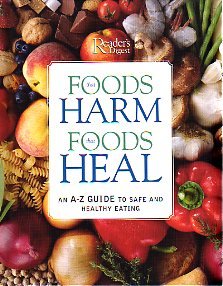As I have stated earlier, here is the data for the eggplant from Reader's Digest's book, Foods That Harm, Foods That Heal.
From page 34:
- Eggplant ranked 19, with an ORAC score of 390 (3 1/2 oz or 100mL), for having an antioxidant property
From pages 145 and 146:
Benefits
Drawbacks
- Soak up fat during cooking.
- Provide minimal nutrients.


Eggplants provide very little nutrition, but are among our most versatile vegetables and a component of many popular ethnic dishes, including Indian curries,
Greek moussakas,
Middle Eastern baba ghanoush, and French ratatouille. Eggplants are filling, yet low in calories -- a cup has 40 calories. Eggplants' spongy testure, however, soaks up fat.
Deep-fried eggplants soak up four times as much fat as
French fried potatoes.
The tastiest eggplants are firm, with thin skins and a mild flvor. Larger ones are more likely to be seedy, tough, and bitter. Their skins range in color from deep purple to light violet and white.


Eggplants are members of the
nightshade family, which also includes
tomatoes,
potatoes, and peppers. Some have a bitter flavor, which easily can be eliminated with salt before cooking. Slice of cube the eggplant, then sprinkle it with salt. Let it stand for half an hour, then drain it and blot it dry. The salt draws out the excess moisture and reduces bitterness. Eggplants can be stuffed and baked or broiled, roasted, or stewed. If sauteing, use a nonstick pan and minimal oil.

 From page 371:
From page 371:
"Most vegetables do not provoke allergies, but some people react to members of the nightshade family, which includes eggplants and tomatoes..."
Lifted from Foods That Harm, Foods That Heal by Reader's Digest.
-----
 Cover of Foods That Harm, Foods That Heal
Cover of Foods That Harm, Foods That Heal











good to see you again. how are things going?
ReplyDelete